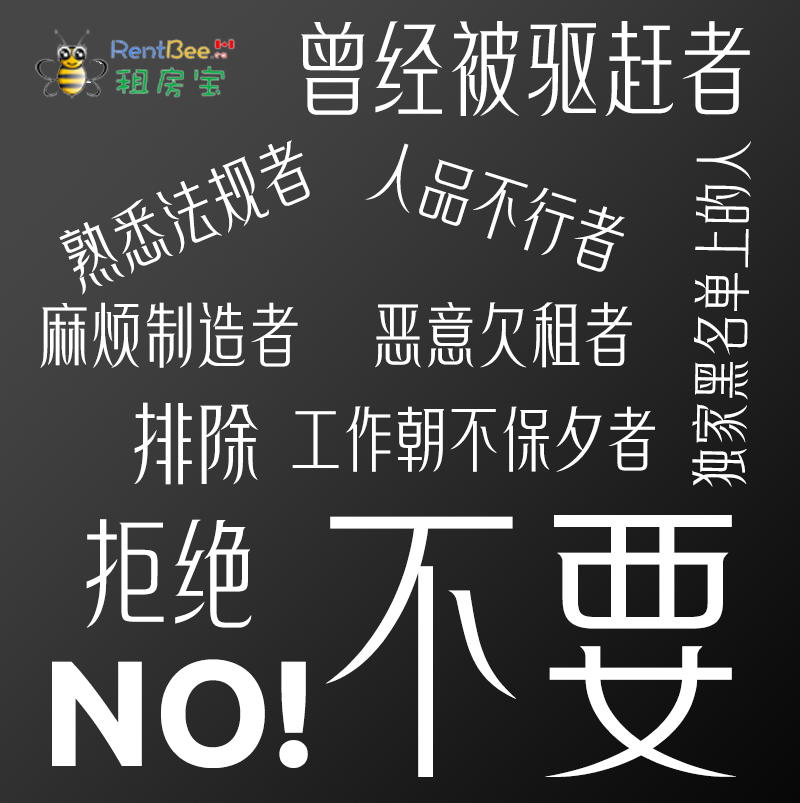申请美国大学的同学都知道,每年除了CA系统里的通用申请文书外,多数美国大学都会要求提交补充文书,这补充文书中往往包含了丰富的信息,也是学校进一步了解申请者的途径。 而在众多美国大学中,芝加哥大学的文书题目一向以趣味性和独特另类著称,算是出了名的刁钻古怪了,各种标新立异,烧脑又奇葩,简直让申请者们又爱又恨。 芝加哥大学官网最近放出了2019-2020的补充文书题目,大家一起看看吧~ 虽然芝加哥大学每年的文书题目千变万化,但招生人员想要看到的,还是充满新意与创造性的内容。在阅读这些题目的时候,记下一些瞬间迸发的灵感和直觉,有时候会有助于你应对一些具体又古怪的题目。 How does the University of Chicago, as you know it now, satisfy your desire for a particular kind of learning, community, and future? Please address with some specificity your own wishes and how they relate to UChicago. 根据你现在对芝加哥大学的了解,芝加哥大学如何满足你对于学习,环境,以及未来的展望?请用具体事例来阐述你和芝加哥大学的联系。 这一题你要思考为什么想来芝大学习。你要达到什么目标以此符合大学的教诲?大学社区提供什么帮助让你实现这些目标?换句话说,他们想要知道你在做足功课(芝大偏好)的基础上,从本质了解大学能为你提供的教育和生活,而不是仅仅阐述“申请原因”。 最重要的是,招生官希望看到你很清楚自己的目标是什么,并且看到你的目标与大学课程的结合方式。以下是一些你可以写的可能的题目: 你特别感兴趣的专业或课程; 芝大的核心课程; 你敬佩的或者想跟随学习和做研究的教授; 你感兴趣参加的课外活动; 学校热烈的学术氛围; 你渴望的研究机会; 小班级容量或者以讨论为基础的课程; 你见过的令你敬佩的芝大学生等等。 在你的主体内容中,应该选1-3个原因表明为什么认为芝大对你来说是最好的学校。每个原因都应描述芝大可以提供什么,将这些与你的兴趣,技能相联系证明你是如何与学校契合的。记住要完整的回答题目,在芝大的学习和社区都要谈及到,以及你的未来计划和芝大可以如何帮助你完成它的。 Cats have nine lives, Pac-Man has three lives, and radioactive isotopes have half-lives. How many lives does something else—conceptual or actual—have, and why? ——Inspired by Kendrick Shin, Class of 2019 猫有九条命,吃豆人有三条命,放射性同位素有半衰期。其他事物——概念上的或现实上的——有多少生命?为什么?(受2019届毕业生Kendrick Shin的启发) If there’s a limited amount of matter in the universe, how can Olive Garden (along with other restaurants and their concepts of food infinity) offer truly unlimited soup, salad, and breadsticks? Explain this using any method of analysis you wish—physics, biology, economics, history, theology… the options, as you can tell, are endless.——Inspired by Yoonseo Lee, Class of 2023 如果宇宙中的物质是有限的,橄榄园(连同其他餐厅以及他们对食物无限的概念)怎么能提供真正无限的汤、沙拉和面包棒呢?用任何你想用的分析方法来解释这个问题——物理、生物学、经济学、历史、神学……你可以看到,选项是无穷无尽的。(受到2023届毕业生李允熙启发) A hot dog might be a sandwich, and cereal might be a soup, but is a ______ a ______? Inspired by Arya Muralidharan, Class of 2021 (and dozens of others who, this year and in past years, have submitted the question “Is a hot dog a sandwich,” to which we reply, “maybe”) 热狗可以是三明治,麦片粥可以是汤,但是a ______ 是a ______? ——受到2021届毕业生艾莉亚·穆拉里达兰启发(今年和过去几年,还有许多人提交了一个问题“热狗是三明治吗”,我们的回答是“也许是”) “Fiction reveals truth that reality obscures.” – Jessamyn WestInspired by Elizabeth Mansfield, Class of 2020 小说揭示了现实所掩盖的真相。——杰萨明·韦斯特(受2020届毕业生丽莎白·曼斯菲尔德启发) UChicago has international campus centers around the world, but we don’t have any interplanetary, interstellar, or interdimensional campuses… yet! Propose a spot in time or space, in this or any universe, for a new UChicago campus. What types of courses would be taught at this site? What cultural experiences await students who study there?——Inspired by Peter Jasperse, Class of 2022 芝加哥大学在世界各地都有国际校园中心,但我们还没有任何行星间、星际或维度间的校园……建议在时间或空间,在这个或任何宇宙的一个地方,设置一个新的芝加哥大学校园。这个地方会开设哪些课程?在那里学习的学生有什么样的文化体验?(受2022届毕业生彼得·贾斯帕斯启发) “Don’t be afraid to pick past prompts! I liked some of the ones from previous years more than those made newly available for my year. Also, don’t worry about the ‘correct’ way to interpret a question. If there exists a correct way to interpret the prompt I chose, it certainly was not my answer.” – Matthew Lohrs, Class of 2023 “不要害怕挑选过去的文书题目!我更喜欢前几年的一些,而不是今年新推出的那些。此外,不要担心“正确”的解释问题的方式。如果有正确的方式来解释我选择的题目,那肯定不是我的答案。(受2023届毕业生马修·洛尔斯启发) 上述六个题目是今年芝加哥大学补充题目的第二题中的选项,所以不需要每个都写,只需要选择其中一个题目即可,如最后一个题目所说,过往的题目也很好,所以也可以从旧题目选择一个回答。 不会因为你选择哪个题目影响你的录取,只要选择适合你的就好,新的旧的又有什么关系呢?反正也没有正确答案。 Due to a series of clerical errors, there is exactly one typo (an extra letter, a removed letter, or an altered letter) in the name of every department at the University of Chicago. Oops! Describe your new intended major. Why are you interested in it and what courses or areas of focus within it might you want to explore? Potential options include Commuter Science, Bromance Languages and Literatures, Pundamentals: Issues and Texts, Ant History... a full list of unmodified majors ready for your editor’s eye is available.https://collegeadmissions.uchicago.edu/academics/majors-minors—Inspired by Josh Kaufman, AB~q~18 由于一系列的传抄错误,芝大每个系的名字都有一个字母错了,真糟糕!描述你新的目标专业:你为什么对它感兴趣?你想探索其中的什么课程或领域?一些可能的选择有:通勤科学、基情语言文学、双关语基础:议题与文本、蚂蚁的历史……未经修改的专业名称在此供你审阅 Joan of Arkansas. Queen Elizabeth Cady Stanton. Babe Ruth Bader Ginsburg. Mash up a historical figure with a new time period, environment, location, or occupation, and tell us their story. 把一位历史人物放到一个新的时空、环境、场景或职业下,并为我们讲述她/他的故事。 Alice falls down the rabbit hole. Milo drives through the tollbooth. Dorothy is swept up in the tornado. Neo takes the red pill. Don’t tell us about another world you’ve imagined, heard about, or created. Rather, tell us about its portal. Sure, some people think of the University of Chicago as a portal to their future, but please choose another portal to write about. 爱丽丝(爱丽丝梦游仙境的主人公)掉进兔子洞,米洛(神奇收费站主人公)开过收费站,多萝西(绿野仙踪主人公)被龙卷风吹跑,尼奥(黑客帝国主人公)吃下红色胶囊,不要谈你所想象的,听到的,或是你创造的另一个世界, 而是谈谈通往这个世界的大门。当然,一些人认为芝加哥大学就是通往他们未来的大门,不过还是谈谈其他的大门吧 What’s so odd about odd numbers? 奇数有什么奇怪的? Vestigiality refers to genetically determined structures or attributes that have apparently lost most or all of their ancestral function, but have been retained during the process of evolution. In humans, for instance, the appendix is thought to be a vestigial structure. Describe something vestigial (real or imagined) and provide an explanation for its existence. In French, there is no difference between “conscience” and “consciousness.” In Japanese, there is a word that specifically refers to the splittable wooden chopsticks you get at restaurants. The German word “fremdschämen” encapsulates the feeling you get when you’re embarrassed on behalf of someone else. All of these require explanation in order to properly communicate their meaning, and are, to varying degrees, untranslatable. Choose a word, tell us what it means, and then explain why it cannot (or should not) be translated from its original language. Little pigs, French hens, a family of bears. Blind mice, musketeers, the Fates. Parts of an atom, laws of thought, a guideline for composition. Omne trium perfectum? Create your own group of threes, and describe why and how they fit together. The mantis shrimp can perceive both polarized light and multispectral images; they have the most complex eyes in the animal kingdom. Human eyes have color receptors for three colors (red, green, and blue); the mantis shrimp has receptors for sixteen types of color, enabling them to see a spectrum far beyond the capacity of the human brain. Seriously, how cool is the mantis shrimp: mantisshrimp.uchicago.edu What might they be able to see that we cannot? What are we missing? 人眼有3种颜色(红、绿和蓝)的受体,而富贵虾有16种,能看到的颜色远非人眼所及,那么,它们能看到什么我们所看不到的?我们都错过些什么唷? How are apples and oranges supposed to be compared? Possible answers involve, but are not limited to, statistics, chemistry, physics, linguistics, and philosophy. 苹果和橘子该如何比较?可以从统计学角度、化学角度、物理学角度、语言学角度、哲学角度等,同学们根据自己申请的专业角度来写。 The ball is in your court—a penny for your thoughts, but say it, don’t spray it. So long as you don’t bite off more than you can chew, beat around the bush, or cut corners, writing this essay should be a piece of cake. Create your own idiom, and tell us its origin—you know, the whole nine yards. PS: A picture is worth a thousand words. "球在你家庭院(成语: 下一步看你的了)--,一分钱卖你的想法(成语:谈谈你的想法),有话直说,别喷唾沫(成语:吐字清晰的讲出原委)。吃不了兜着走,打草惊蛇(不直接提及主题)或偷工减料。--写篇essay 应该是小菜一碟,创造出你自己的成语,讲清楚缘由,你懂得,全部是九码(都是细节)” “A man cannot be too careful in the choice of his enemies.” –Oscar Wilde. Othello and Iago. Dorothy and the Wicked Witch. Autobots and Decepticons. History and art are full of heroes and their enemies. Tell us about the relationship between you and your arch-nemesis (either real or imagined). Heisenberg claims that you cannot know both the position and momentum of an electron with total certainty. Choose two other concepts that cannot be known simultaneously and discuss the implications. (Do not consider yourself limited to the field of physics). 海森堡声称你不能完全确定地同时知道电子的位置和动量。选择另外两个不能同时知道的概念并讨论其含义。 Susan Sontag, AB’51, wrote that “[s]ilence remains, inescapably, a form of speech.” Write about an issue or a situation when you remained silent, and explain how silence may speak in ways that you did or did not intend. The Aesthetics of Silence, 1967. “…I [was] eager to escape backward again, to be off to invent a past for the present.” —The Rose Rabbi by Daniel Stern So where is Waldo, really? Waldo在哪? Find x. Dog and Cat. Coffee and Tea. Great Gatsby and Catcher in the Rye. Everyone knows there are two types of people in the world. What are they? 狗和猫。咖啡和茶。《了不起的盖茨比》和《麦田里的守望者》。每个人都知道世界上有2种人。他们是谁? How did you get caught? (Or not caught, as the case may be.) Chicago author Nelson Algren said, “A writer does well if in his whole life he can tell the story of one street.” Chicagoans, but not just Chicagoans, have always found something instructive, and pleasing, and profound in the stories of their block, of Main Street, of Highway 61, of a farm lane, of the Celestial Highway. Tell us the story of a street, path, road—real or imagined or metaphorical. UChicago professor W. J. T. Mitchell entitled his 2005 book What Do Pictures Want? Describe a picture, and explore what it wants. “Don’t play what’s there, play what’s not there.“—Miles Davis (1926–91) University of Chicago alumna and renowned author/critic Susan Sontag said, “The only interesting answers are those that destroy the questions.” We all have heard serious questions, absurd questions, and seriously absurd questions, some of which cannot be answered without obliterating the very question. Destroy a question with your answer. “Mind that does not stick.” 开放性理解题。 Superstring theory has revolutionized speculation about the physical world by suggesting that strings play a pivotal role in the universe. Strings, however, always have explained or enriched our lives, from Theseus’s escape route from the Labyrinth, to kittens playing with balls of yarn, to the single hair that held the sword above Damocles, to the Old Norse tradition that one’s life is a thread woven into a tapestry of fate, to the beautiful sounds of the finely tuned string of a violin, to the children’s game of cat’s cradle, to the concept of stringing someone along. Use the power of string to explain the biggest or the smallest phenomenon. Have you ever walked through the aisles of a warehouse store like Costco or Sam’s Club and wondered who would buy a jar of mustard a foot and a half tall? We’ve bought it, but it didn’t stop us from wondering about other things, like absurd eating contests, impulse buys, excess, unimagined uses for mustard, storage, preservatives, notions of bigness…and dozens of other ideas both silly and serious. Write an essay somehow inspired by super-huge mustard. People often think of language as a connector, something that brings people together by helping them share experiences, feelings, ideas, etc. We, however, are interested in how language sets people apart. Start with the peculiarities of your own personal language—the voice you use when speaking most intimately to yourself, the vocabulary that spills out when you’re startled, or special phrases and gestures that no one else seems to use or even understand—and tell us how your language makes you unique. You may want to think about subtle riffs or idiosyncrasies based on cadence, rhythm, rhyme, or (mis)pronunciation. In 2015, the city of Melbourne, Australia created a "tree-mail" service, in which all of the trees in the city received an email address so that residents could report any tree-related issues. As an unexpected result, people began to email their favorite trees sweet and occasionally humorous letters. Imagine this has been expanded to any object (tree or otherwise) in the world, and share with us the letter you’d send to your favorite.
—Inspired by Drew Donaldson, AB’16
—Inspired by Raphael Hallerman, Class of 2020
—Inspired by Mario Rosasco, AB’09
—Inspired by Tiffany Kim, Class of 2020
—Inspired by Emily Driscoll, Class of 2018
—Inspired by Zilin Cui, Class of 2018
—Inspired by Tess Moran, AB’16
—Inspired by Florence Chan, AB’15
—Inspired by April Bell, AB~q~17, and Maya Shaked, Class of 2018 (It takes two to tango.)
—Inspired by Martin Krzywy, AB’16
—Inspired by Doran Bennett, AB’07
—Anonymous Suggestion
Present: pres·ent
1. Something that is offered, presented, or given as a gift.
Let’s stick with this definition. Unusual presents, accidental presents, metaphorical presents, re-gifted presents, etc.—pick any present you have ever received and invent a past for it.
—Inspired by Jennifer Qin, AB’16
—Inspired by Robin Ye, AB’16
—Inspired by Benjamin Nuzzo, an admitted student from Eton College, UK
—Inspired by an anonymous alumna, AB~q~06
—Inspired by Kelly Kennedy, AB’10
—Anonymous Suggestion
—Inspired by Anna Andel
—Inspired by Jack Reeves
—Inspired by Aleksandra Ciric
—Zen Master Shoitsu (1202–80)
—Inspired by Adam Sobolweski
—Inspired by Katherine Gold
—Inspired by Kimberly Traube
-Inspired by Hannah Lu, Class of 2020
芝加哥大学2019-2020补充文书题目出炉!古怪刁钻、烧脑又奇葩!











0 Comments
Leave A Reply